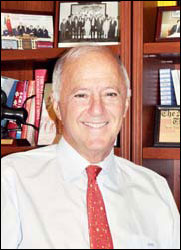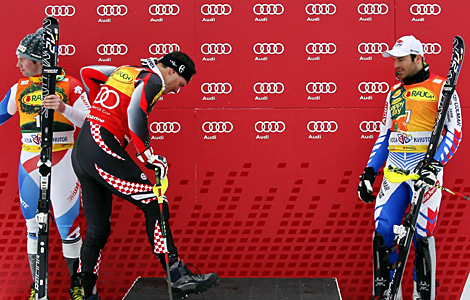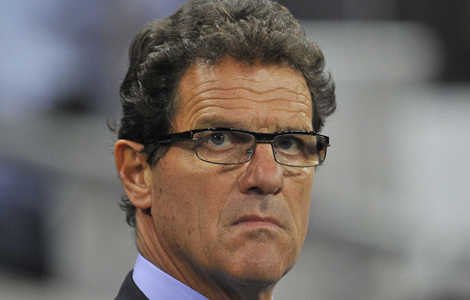Trust vital for strong relations
Updated: 2012-02-14 07:40
By Ariel Tung (China Daily)
|
|||||||||||
Better understanding will improve Sino-US ties, business cooperation
|
 |
|
Stephen Orlins is president of the US National Committee on US-China Relations. |
"Better understanding between the US and China will strengthen bilateral ties further and make the world a better place," says Stephen Orlins, president of the committee.
"The single greatest impediment to constructive relations is the mistrust between China and the US," he says.
"If I had a magic wand and could wave it, I want more trust from China to America, and from America to China. I wish they could trust each other more."
Set up in 1966, the National Committee on US-China Relations has evolved over the years.
It first briefed US government officials on China at a time when there were no diplomatic relationships between the two nations.
In 1972, after former secretary of state Henry Kissinger's visit to China, the committee hosted the Chinese ping-pong team in the US. It was the foundation of a people-to-people relationship that has blossomed in the last four decades.
On Feb 15, the committee will co-host a luncheon for Vice-President Xi Jinping during his visit to Washington.
"Because of our nearly 45-year-old association with China, we have been able to hold discussions on many sensitive topics that even the American government could not," said Orlins, who worked for the US State Department, and was part of the legal team that helped establish diplomatic relations with China.
"We have conducted economic dialogue on subjects that both governments are wary of discussing. We are franker than the governments could be. We had a discussion with the People's Liberation Army about security issues. We had human rights discussions with the State Council of the People's Republic of China and China Foundation for Human Rights Development," Orlins says.
Even though there have been several impressive strides, Orlins still sees some impediments in Sino-US ties. He agrees with some experts' predictions that trade tensions between China and the US will worsen this year due to the bleak financial outlook and US election politics.
"The economic outlook creates risk to the trade relationship, and that is worsened by the fact that elections portray China to be a very negative force in US job losses. The candidates are saying Chinese trade policy - its currency valuation - is a significant cause for unemployment in the US. So the response will be further trade actions against China," he says.
"If you ask whether there are going to be problems in the relationship, the answer is yes. Will there be problems with trade issues? Yes. Will there be problems on US criticism of China's human rights policy? Yes. Will there be problems relating to how we deal with the Democratic People's Republic of Korea and Iran? Yes."
While China and the US face similar threats such as terrorism, climate change, piracy and financial crisis, cooperation is "something that will occur" between the two, he says. Fundamentally, the two countries' interests are complementary, and not conflicting.
Hot Topics
Kim Jong-il, Mengniu, train crash probe, Vaclav Havel, New Year, coast guard death, Internet security, Mekong River, Strait of Hormuz, economic work conference
Editor's Picks

|

|

|

|

|

|







